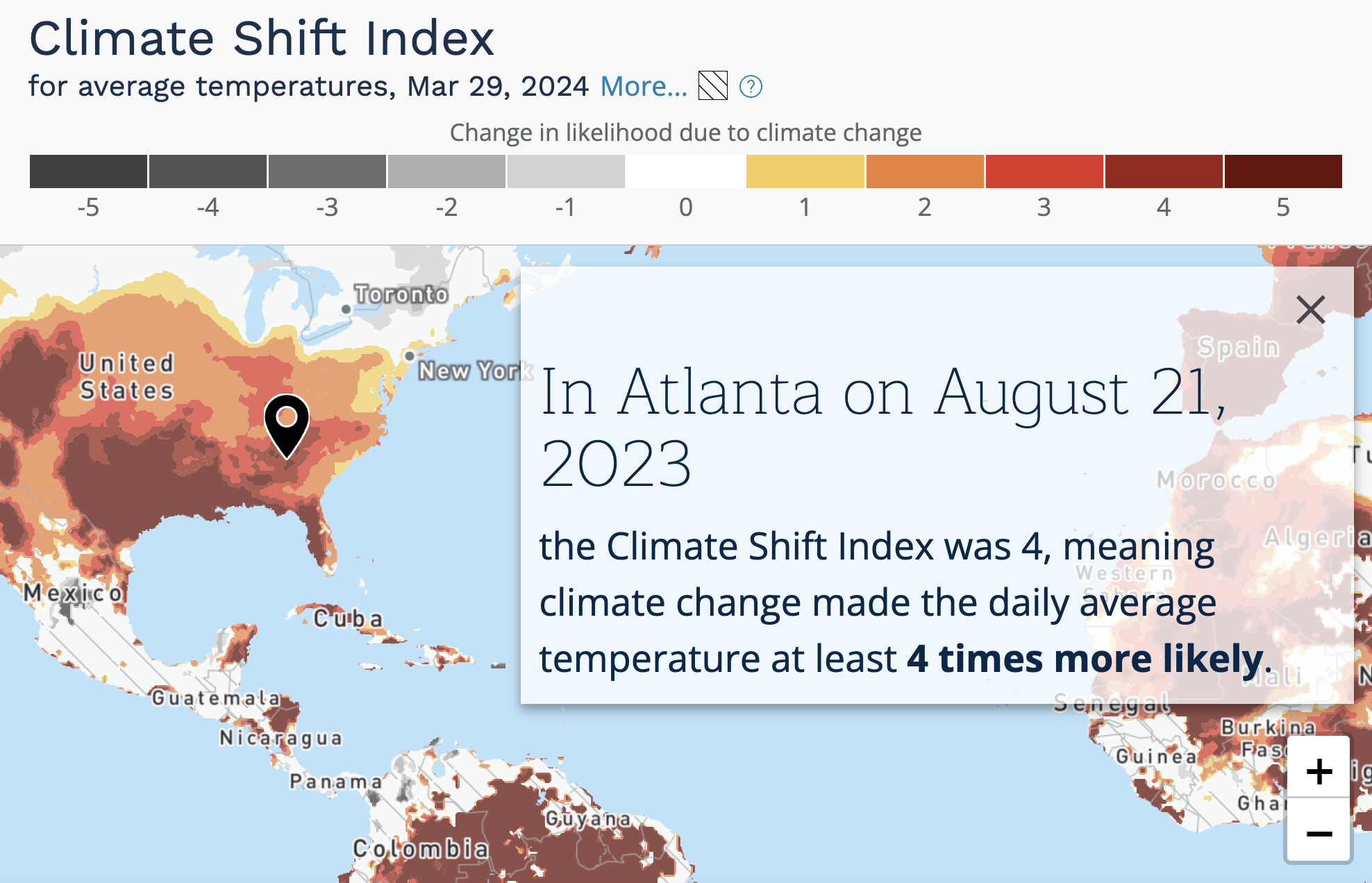Climate Central and attribution science
We recognized a problem.
In 2014, the common-held story among scientists, policymakers and the media went something like this: No individual heat wave, flood or drought can be linked to climate change.
That was wrong, and had been for a decade. A breakthrough report in 2004 ushered in the new science of event attribution, a means to calculate the influence of carbon pollution on certain weather disasters. Still, these calculations took months, long after the news media and the public had shifted attention away from the disaster.
Climate Central recognized the need to accelerate attribution analyses of big weather events dramatically so that climate change entered the conversation while the heat wave, heavy downpours and other extremes were still fresh in the minds of the media and their audiences.
We proposed a solution and got to work.
We initiated conversations with leading researchers and key journalists about bringing attribution science into the news cycle. We pulled together an international group of the world’s elite attribution scientists and with them launched World Weather Attribution (WWA).
We changed the narrative.
We created a framework for how and when extreme weather events would be analyzed. We secured funding. We developed a media outreach strategy. As a direct result of the WWA collaboration and the advancement of attribution science, studies of extreme weather events that took months were now possible to produce in a matter of days. From 2014 - 2017, with Climate Central as Secretariat, WWA conducted more than 20 analyses around the globe, drawing worldwide coverage from hundreds of media outlets, big and small. The narrative of not being able to link climate change to an individual weather disaster had changed.

Climate Central and WWA began working independently in 2018, except for one key area of collaboration. Together, they developed the methodology behind Climate Central’s Climate Shift Index. CSI brings the attribution timescale down to the same day, and even the forecast—everyday, everywhere. This resource, combined with clear communication, tells the story of climate change in a way that is as universally relatable as the weather.
The goal? To transform climate communication worldwide, by making it easy for journalists, influencers, and others to integrate climate change into everyday stories with scientific rigor, specificity, and credibility. And by helping people to see how climate change connects to their own local experiences, weather, and lives – again and again – we will build the public will for actions that reduce climate pollution impacts now and in the future.